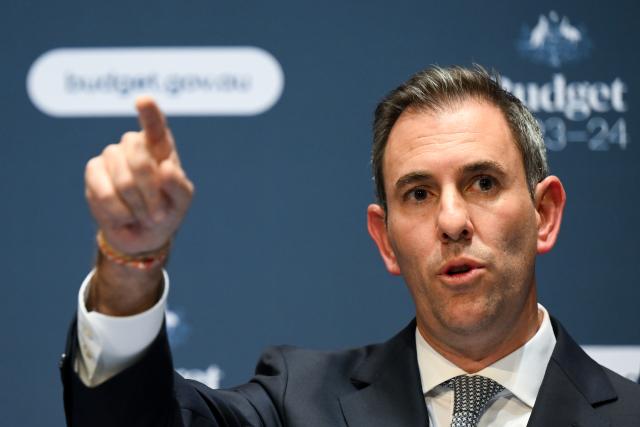Political pundits are coming from everywhere to slam the federal government’s plans to support solar energy and critical minerals industries. And some of that ill-founded criticism is coming from within government circles.
A case in point is the criticism by Gary Banks, the recent chair of the Productivity Commission (PC), at a conference in Fremantle last month.
He declared that Labor has ‘embarked on a fool’s errand by embracing a new Made in Australia agenda’. He also railed about the death of proper policy development in Canberra, and he condemned a culture of secrecy and the growing politicisation of the public service. Well, he got the last bits right.
Banks warmed to his task by insisting that a new wave of subsidies would risk repeating past mistakes. He said import replacement was at the heart of the agenda, and the risk is a long-term dependence on public support…companies would be encouraged to maximise government sponsorship, particularly where the competitive fundamentals are lacking.
An alternative view
Now let’s slow down here and put an alternative view.
The catalyst for Banks’ diatribe was presumably Albanese’s announcement of $1 billion subsidies to underpin the production of solar panels in Australia, together with a loans and grants for rare earths refining in the Northern Territory.
This obviously offended Banks because he was taking on the Treasurer Jim Chalmers who has responsibility for the PC. The sensitivity is that six months ago, Chalmers issued a ‘statement of expectations’ (a loaded phrase in Canberra-speak) to the Productivity Commission that explicitly asked it to take account of the government’s goal to be a renewable energy superpower. In other words, the PC should use some judgement in this space.
Well, the fact of the matter is that the PC is basically a law unto itself. Hence, it’s been an outlier within the federal policy system – 180 intelligent people, most of whom have a strong grounding in economic theory and fervent in its defense of free trade. Generally speaking, its staff has little feel for the challenges facing Australian manufacturers, farmers or small business operators. Their usual position is that industry policy is inherently interventionist and misguided, and our consumers benefit in any case.
So, I’m cheering for Jim Chalmers – it’s rare to see a Treasurer pushing for an industry policy. Governments all over the globe facilitate start-up activities, and the savvy ones like Germany, Switzerland, South Korea, Sweden etc. have industry programs that focus on creating competitive advantage. Chalmers and the Industry Minister Ed Husic understand this. The signs are therefore good that Australia can move into a new era where manufacturing and the value adding of raw materials are seen as legitimate wealth generators. The corollary of this is to have energy, education and training, trade, defence and immigration policies that support this. Defence policy is worth a special mention here because a submarine manufacturing in Australia is the antithesis of what I’m talking about!
Anyway, the notion of ‘smart specialisation’ might be a vehicle for delivering the required attitudinal change. It’s OECD jargon that has evolved from studies of successful manufacturing economies, where the emphasis is on design, innovation, supply/value chains, robotics, clusters and international joint ventures.
Role for local government?
One thing that the feds have done reasonably well – in tandem with the states and local government – is ‘picking up the pieces’ when industries close. I guess we’ve had a lot of practice!
But delivering smart specialisation is obviously a lot different. Three suggestions for councils with an interest in this field:
* Send strong signals to investors and policymakers that you’re open for business. Gladstone has always been on the front foot, so the recent federal support for its Alpha high-purity alumina project was not a surprise.
* Co-fund network and/or cluster programs to facilitate collaboration and inter-company alliances.
* Pitch consistently to potential international investors, jointly with state agencies. Forget Austrade – it has exited this space.
Truck accidents
A spate of truck accidents and deaths is being reported. It’s not surprising given the antics of truck drivers I’ve witnessed of late.
Example 1 – Hume Highway near Mossvale. A truck, with ‘wide load’ signage, carrying half a modular home at speeds in excess of 115km/hour. Was the driver aware that the speed limit for trucks is 100km/hour in EVERY state and territory, except the NT? Sheer madness.
Example 2 – Pacific Highway near Port Macquarie. A truck tailgating yours truly for at least 10km in zero visibility due to pouring rain.
Example 3 – Sunshine Coast. Ubiquitous tradies in utes performing slaloms well above the speed limit in heavy traffic.
What is going on? But it would take a huge amount of police surveillance to rein in this behavior.
One way around this is to introduce laws to install speed limiters on trucks. I’ve seen it working a treat in Portugal. And Ontario saw a 73 per cent drop in truck crashes after mandatory speed limiter technology took effect in 2009.
I’m interested to know why trucks in Australia aren’t required to have signage indicating they’re limited to a speed of 100km/hour. Surely this should be mandated. The kicker would be a phone number to report transgressions. This is a tricky area but there’s a way through this.
I’m currently awaiting a call back from the feds on this. They’re going to insist on an email, so I’ll be sending them this article as background! I will report on my progress next month.
Rod Brown is a Canberra-based lobbyist specialising in industry/regional development. Email apdcockatoo@iprimus.com.au

















